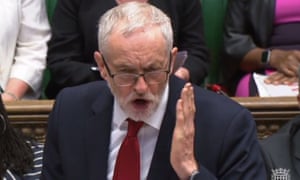
Here is a little fantasy to mull over as 2019 gets under way. Imagine that someone in power outlined a plan to work with the public, parents, teachers, heads and governors to establish common values for the education system.
The architects of the plan would provide extra cash to implement any changes required by this shared endeavour, aimed at securing continuous improvement while reducing inequality, supporting staff and addressing workload issues. Unrealistic?
Except this is not a dream. Earlier this month a 10-year plan was published for the National Health Service based on exactly these principles. It received a cautious welcome, though with inevitable and genuine concern about adequate resourcing.
What is clear from the glaring contrast between the visions for these two key public sectors is that education is rapidly becoming a Cinderella service. Far from being energised by a long-term strategic vision, it is drifting towards bankruptcy, chronic staff shortages and serious concern about the ability to maintain standards.
It would be interesting another time to delve into how we arrived at this point. Why does the health service hold a sacred place in the hearts of the public and politicians, while education does not?
It is a critical problem that the invisible double act of Damian Hinds and Angela Rayner (secretary of state and his shadow) appear to be doing little to address. Hinds has a slim excuse in that swathes of his department have been switched to no-deal Brexit planning.
What little resource is left at the Department for Education is presumably dealing with the fallout from his predecessors’ reforms. But as far as funding cuts are concerned, the music stopped on his watch. It was only after being pressed by the education select committee last week that Hinds acknowledged similar long-term funding for schools might be a good idea.
And I am not sure what Labour’s excuse would be. The party’s leadership on one hand claims the country urgently needs a general election, while on the other, offers few concrete proposals about how it would use power transformatively.
Its National Education Service, still in barely skeleton form four years after it was announced, would provide an obvious starting point to compare to the government’s long-term planning for the NHS.
But a recent analysis of prime minister’s questions shows that last year Jeremy Corbyn didn’t include a single question about education, confirming suspicions it isn’t a subject that interests him much.
Meanwhile, Labour appears, from its website at least, to be launching yet another education consultation in addition to the one it carried out last year. The permanent canvassing of opinion in the name of party democracy has become a fig leaf to avoid making difficult decisions.
But if the National Education Service is to match the NHS in the public’s hearts and imaginations, work needs to start now. Hard questions need answering. How to resolve the chaotic part-academy, part-maintained school hybrid and lack of adequate school sponsors caused by Michael Gove’s frantic shake-up? How to mitigate the impact of a competitive high-stakes accountability on the most disadvantaged and vulnerable – the correlation between exclusion and knife crime alone should be a red warning light. Perhaps most pressingly, how to develop high-status vocational education in the light of any post-Brexit needs.
Excellent, equitable health and education provision should be in any civilised country’s DNA, the twin pillars of a socially cohesive society at ease with itself. The events of the last few years may cause many of us to doubt whether the UK can now comfortably see itself in that light.
But we can aspire to heal the divisions that austerity and Brexit have fostered. Any investment in the NHS is welcome, but condemning education to a second-tier priority is shortsighted, cowardly and counterproductive.
[“source=theguardian”]



